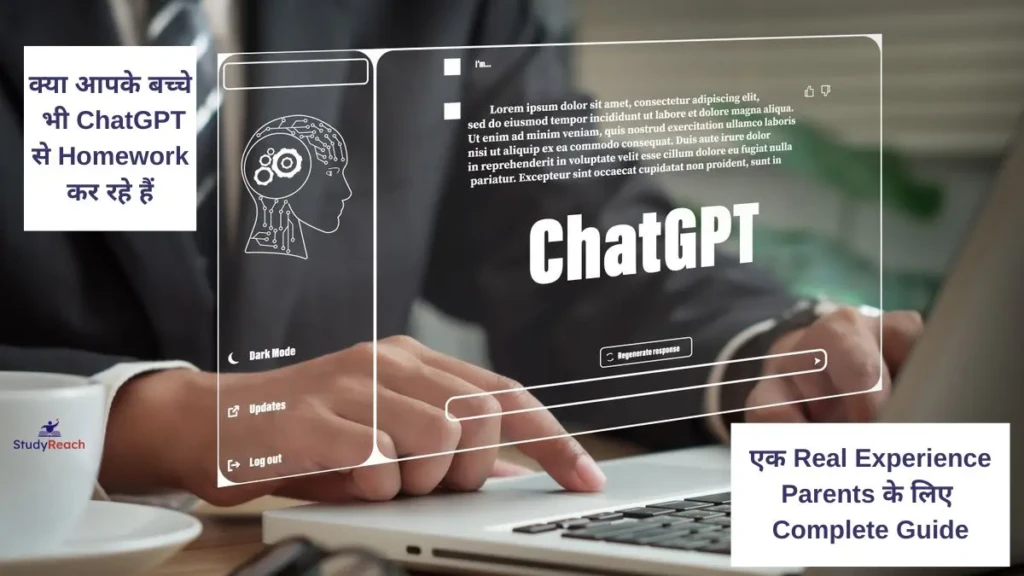
Child Lies About Homework: 7 Shocking Reasons Parents Miss
जब आपका बच्चा कहता है “हाँ, homework हो गया” लेकिन अगले दिन school से complaint आती है, तो यह सिर्फ एक lie नहीं है – यह एक deeper problem का signal है। इस article में, मैं आपको बताऊंगा कि child lies about homework क्यों बोलते हैं, इसके पीछे की real psychology क्या है, और सबसे important – आप इसे कैसे handle करें बिना relationship खराब किए। यह article उन parents के लिए है जो frustrated हैं, जो अपने बच्चे पर trust करना चाहते हैं, लेकिन बार-बार झूठ सुनकर थक गए हैं।
Table of Contents
Why Understanding This Problem Matters
हर parent को यह समझना ज़रूरी है कि homework के बारे में झूठ बोलना सिर्फ एक behavioral issue नहीं है। यह अक्सर बच्चे के emotional state, school pressure, या family dynamics का reflection होता है। जब हम इस problem को सिर्फ “झूठ” की तरह treat करते हैं और punishment देते हैं, तो हम actual root cause को miss कर जाते हैं।
The Real Story: When I Discovered The Pattern
मेरे 15 साल के teaching और principal experience में, मैंने हजारों parents से यही complaint सुनी है: “Mera bachcha homework के बारे में हमेशा jhooth bolta hai!”
लेकिन जब मैं students से privately बात करता हूँ, तो एक अलग story सामने आती है। वो झूठ नहीं बोलना चाहते – वो trapped feel करते हैं।
एक incident share करता हूँ:
Class 7 का एक student, Rohan (name changed), हर दिन अपनी मम्मी से कहता था कि homework complete है। लेकिन school में वो continuously homework incomplete लाता था। Parents को बुलाया गया, घर पर punishment हुई, लेकिन pattern change नहीं हुआ।
जब मैंने Rohan से अकेले में बात की, तो उसने रोते हुए कहा: “Sir, मुझे homework समझ नहीं आता। लेकिन अगर मैं मम्मी–पापा से कहूँ, तो वो गुस्सा हो जाते हैं कि ‘class में ध्यान क्यों नहीं देते?’ इसलिए मैं कह देता हूँ कि हो गया।“
यह एक isolated case नहीं था। यह एक pattern था जो मैंने repeatedly देखा।
7 Real Reasons Why Child Lies About Homework Completion
1. Fear of Punishment or Disappointment
सबसे बड़ा reason – डर!
बच्चे झूठ इसलिए नहीं बोलते कि वो bad हैं। वो झूठ इसलिए बोलते हैं क्योंकि उन्हें consequences का डर होता है।
What happens in their mind:
- “अगर मैं सच बोलूँ कि homework नहीं किया, तो phone छीन लेंगे”
- “Papa gussa ho जाएंगे और मुझे lecture मिलेगा”
- “Mummy disappointed feel करेंगी”
Reality check: जब घर का environment punishment-focused होता है, तो बच्चा honesty की जगह survival choose करता है।
2. They Actually Don’t Understand the Assignment
यह बहुत common reason है जो parents miss कर देते हैं।
बच्चा सोचता है:
- Homework तो मिल गया, लेकिन समझ नहीं आया कि करना कैसे है
- Class में पूछने में शर्म आ गई
- Teacher बहुत fast padha रहे थे
- Dost भी नहीं समझे, तो मैं किससे पूछूँ?
इसलिए, homework incomplete रह जाता है, और फिर बच्चा झूठ बोल देता है because admitting “I don’t understand” feels like admitting “I’m dumb.”
3. Overwhelming Workload and Time Management Issues
आजकल के students का schedule देखिए:
| Time | Activity |
| 7:00 AM – 2:00 PM | School |
| 3:00 PM – 5:00 PM | Tuition |
| 5:30 PM – 6:30 PM | Extracurricular (sports/music) |
| 7:00 PM – 8:00 PM | Dinner + Family time |
| 8:00 PM – 10:00 PM | Homework |
Total time for homework: 2 hours maximum
Actual homework load: 3-4 subjects, multiple chapters
बच्चे के पास physically time नहीं होता सब kuch complete करने का। लेकिन वो यह articulate नहीं कर पाते, इसलिए झूठ बोल देते हैं कि “सब हो गया“ बस parents को satisfy करने के लिए।
4. Perfectionism and Fear of Failure
कुछ बच्चे झूठ इसलिए बोलते हैं क्योंकि वो perfectionists हैं।
Their thought process:
- “अगर मैं यह homework करूँगा तो perfect नहीं होगा”
- “Mujhe sahi se नहीं आता, तो better है न ही करूँ”
- “Agar galat ho गया तो teacher क्या सोचेंगे?”
Ironically, यह बच्चे वो होते हैं जो actually care करते हैं अपने work के बारे में। लेकिन perfectionism paralysis create कर देता है, और फिर lying becomes easier than failing.

5. Lack of Motivation or Relevance
Honest बात: बहुत सारा homework meaningless होता है।
जब बच्चे को लगता है कि:
- “यह homework करने से मुझे कुछ मिलेगा नहीं”
- “यह तो बस copy करना है textbook से”
- “इसका real life में कोई use नहीं है”
तो naturally, motivation गिर जाती है। और जब parents पूछते हैं, तो बच्चा यह नहीं कह सकता कि “Mujhe boring lag raha hai” क्योंकि वो disrespectful लगेगा।
इसलिए simple झूठ बोल देते हैं: “हो गया।“
6. Distractions: Technology, Friends, and Entertainment
आज के digital age में यह biggest challenge है।
बच्चा homework करने बैठता है, लेकिन:
- Phone पर notification आती है
- YouTube shorts शुरू हो जाते हैं
- WhatsApp group में dost मज़ाक कर रहे हैं
- Gaming की craving होती है
What happens: 2 घंटे निकल जाते हैं, homework 20% ही complete होता है। अब parents पूछते हैं, तो बच्चा क्या बोले? “मैं distracted हो गया“ – यह admit करना मुश्किल है, इसलिए झूठ आसान लगता है।
7. Seeking Attention Through Negative Behavior
कभी-कभी, lying itself is a cry for attention.
Psychological pattern:
- बच्चे को लगता है कि parents busy हैं
- कोई उनकी बात नहीं सुनता
- Homework lie बोलने पर suddenly सबका attention मिलता है
- भले ही वो negative attention हो, लेकिन फिर भी attention तो है
यह subconscious behavior होता है। बच्चा deliberately plan नहीं करता, लेकिन pattern बन जाता है।
The Psychology Behind Lying: What Research Says when child lies about homework
Studies show कि:
- 85% of children lie about homework at some point in their school life
- Peak lying age: 10-14 years (pre-teen to early teen)
- Main trigger: Fear of disappointing parents (67% cases)
- Secondary trigger: Peer pressure and social comparison (48% cases)
Important insight: जब बच्चे lie बोलते हैं, तो यह developmental stage का हिस्सा भी है। वो testing boundaries, learning social navigation, और exploring autonomy।
यह justify नहीं करता lying को, लेकिन यह perspective देता है कि it’s not about being a “bad kid” – it’s about being a confused kid.
Related Article : Why Kids Lie and What Parents Can Do About It
Warning Signs: Is Your Child Lying About Homework?

Students v/s ChatGPT: Ek Chinta ka vishay Aur Parents Ke Liye Zaroori Message
Jab technology bachon ki padhai ka shortcut ban jaye, toh samay hai sochne ka
यह signals देखें:
✓ बच्चा हमेशा कहता है “कोई homework नहीं था“ ✓ Homework diary छुपाता है या “भूल गया” बोलता है ✓ Teacher से complaint आ रही है बार–बार ✓ Homework के बारे में पूछने पर defensive हो जाता है ✓ Grades suddenly गिरने लगे हैं ✓ Homework time में anxious या irritable दिखता है ✓ रात को बहुत late तक “homework” करने का नाटक करता है
What NOT To Do When You Catch The Lie
❌ Don’t React with Immediate Anger
जब आपको पता चले कि बच्चे ने झूठ बोला है, तो सबसे पहली instinct होती है gussa करने की। लेकिन यह situation को worse बनाता है।
Why it doesn’t work:
- Anger shut करता है communication को
- बच्चा defensive mode में चला जाता है
- Trust और ज़्यादा टूटता है
- Future में वो और carefully झूठ बोलना सीख जाता है
❌ Don’t Compare with Other Children
“Sharma ji के बेटे को देखो, वो कभी झूठ नहीं बोलता!”
यह statement:
- बच्चे की self-esteem तोड़ देता है
- उसे inadequate feel कराता है
- Problem solve नहीं करता
❌ Don’t Label Your Child as a “Liar”
“तुम तो झूठे हो ही!” – यह label बच्चे की identity का part बन जाता है।
Psychology principle: जब आप किसी को repeatedly कोई label देते हैं, तो वो उस label को fulfill करने लगता है।
The RIGHT Way to Handle Homework Lies: 5-Step Solution
Step 1: child lies about homework Create a Safe Space for Honest Conversation
Timing matters:
- जब दोनों calm हों
- Private space हो (siblings या guests के सामने नहीं)
- Dedicated time हो (rush में नहीं)
Opening line की example:
“बेटा, मुझे पता चल गया कि तुमने homework के बारे में सही नहीं बताया। मैं gussa नहीं हूँ, लेकिन मैं समझना चाहता/चाहती हूँ कि actually क्या हो रहा है। Honestly बताओ – तुम्हें कोई problem है?”
Key: Tone should be curious, not accusatory.
Step 2: child lies about homework Listen Without Interrupting
यह सबसे मुश्किल part है, लेकिन सबसे ज़रूरी भी।
जब बच्चा बोलना शुरू करे:
- उसे complete करने दो
- Beech में advice मत दो
- Immediate solutions मत offer करो
- बस actively सुनो
Active listening means:
- Eye contact बनाए रखो
- Nod करो understanding दिखाने के लिए
- Occasional “हम्म” या “okay, मैं समझ रहा हूँ” बोलो
Step 3: Address the Root Cause, Not Just the Lie
अब जब आपको पता चल गया कि actual problem क्या है, तो उसे address करो।
Example scenarios:
| Root Cause | Solution Approach |
| Don’t understand homework | Hire a tutor या खुद help करने का time निकालो |
| Too much workload | Priority system बनाओ, schedule reorganize करो |
| Fear of punishment | Home environment को more supportive बनाओ |
| Distraction issues | Study space improve करो, tech-free zones बनाओ |
| Need attention | Quality time specifically dedicate करो |
Step 4: Set Clear Expectations and Consequences
अब rules साफ़ करो:
“देखो, मैं समझता/समझती हूँ कि तुम्हें problem था। लेकिन अब से यह rule है: अगर तुम्हें homework में कोई भी problem हो, तो झूठ बोलने की जगह directly मुझे बताना। मैं promise करता/करती हूँ कि मैं gussa नहीं होऊँगा, बल्कि साथ में solution ढूँढेंगे।”
और फिर consequences भी बताओ:
“लेकिन अगर अब भी झूठ बोला, तो इसका मतलब है तुमने मेरा trust तोड़ा। और trust वापस earn करना पड़ेगा। इसका मतलब होगा [specific consequence जैसे screen time कम होना, privileges reduce होना].”
Important: Consequences harsh नहीं होने चाहिए, बस meaningful होने चाहिए।
Step 5: Build a Homework System Together
अब एक practical system बनाओ साथ में – बच्चे को involve करो।
Homework Management System:
Daily Routine:
- 3:00 PM: School से आने के बाद 30 min break (snacks + relax)
- 3:30 PM: Homework diary check करो साथ में
- 3:45 PM: Prioritize करो – कौनसा homework पहले?
- 4:00 PM – 5:30 PM: Actual homework time (25 min work + 5 min break cycle)
- 5:30 PM: Review together – क्या complete हुआ? कल क्या बचा?
- 5.30 PM – 7.30/8.00 PM : Dinner and थोड़ा समय TV/game को
- 7.30/8.00 PM – Learning करें कि आज क्या पढ़ाया था या कल क्या पढ़ने वाले हैं + 10 vocabulary words learning with meaning
Weekly Review:
- हर Sunday को आने वाले week का homework plan बनाओ
- Projects और assignments को break करो smaller tasks में
- Calendar पर mark करो deadlines
Building Trust: Long-Term Strategies
Strategy 1: Praise Honesty, Even When the Truth is Uncomfortable
Critical principle: जब बच्चा honest हो, भले ही news बुरी हो, उसे acknowledge करो।
Example:
बच्चा: “Mumma, मैंने math homework नहीं किया।”
Wrong response: “फिर से! तुम कभी responsible नहीं बन सकते!”
Right response: “Thank you for honestly बताया। यह मुझे appreciate करती हूँ। अब बताओ, homework क्यों नहीं हुआ? और हम कैसे manage करें?”
यह approach क्या करता है: बच्चे को यह सिखाता है कि honesty rewarding है, even when the situation is not ideal.
Strategy 2: Make Homework a Collaborative Activity, Not a Battle
Shift in mindset:
- Homework parents vs child का battle नहीं होना चाहिए
- यह एक team effort होनी चाहिए
Practical ways:
- Homework time में साथ बैठो (आप अपना काम करो, वो अपना – parallel working)
- Check करते वक़्त supportive tone use करो: “Wow, यह तो तुमने अच्छा किया! यहाँ थोड़ा improvement करें?”
- Celebrate small wins: “आज तुमने khud से start किया homework – proud हूँ मैं!”
Strategy 3: Teach Them That Mistakes Are Okay
Growth mindset develop करो:
बच्चे को यह सिखाओ कि:
- Homework गलत हो सकता है – यह normal है
- Important है trying, not perfection
- Mistakes से हम सीखते हैं
Real-life example share करो:
“जानते हो, जब मैं तुम्हारी age का था, मैंने एक बार पूरा science project गलत कर दिया था। लेकिन उससे मैंने इतना सीखा कि अगली बार first prize आया!”
यह stories बच्चे को permission देती हैं fail करने की, और उस fear को reduce करती हैं जो lying trigger करता है।
Role of Schools and Teachers
यह सिर्फ parents की responsibility नहीं है। Schools को भी proactive role play करना चाहिए:
What Schools Should Do, when child lies about homework:
✓ Reasonable homework load दें – age-appropriate और manageable ✓ Clear instructions दें – बच्चे को समझ आए क्या करना है ✓ Feedback system बनाएँ – सिर्फ marks नहीं, constructive comments दें ✓ Parent-teacher communication regular रखें – sirf complaints नहीं, updates भी
What Teachers Can Do:
✓ Homework की purpose explain करें – बच्चे को पता होना चाहिए “why” ✓ Different learning styles acknowledge करें – सबको same homework नहीं चाहिए ✓ Safe environment create करें जहाँ बच्चे doubts पूछ सकें
When to Seek Professional Help
कभी-कभी, homework lying एक bigger issue का symptom होती है।
Professional help की ज़रूरत है अगर:
- बच्चा consistently lying कर रहा है multiple areas में (सिर्फ homework नहीं)
- Anxiety या depression के signs दिख रहे हैं
- Academic performance drastically गिर रही है
- Social withdrawal हो रहा है
- Sleep या eating patterns disturbed हैं
- आपने सब try किया लेकिन कोई improvement नहीं
तो किससे मिलें:
- School counselor
- Child psychologist
- Educational therapist
- Family therapist (if needed)
Remember: Professional help लेना weakness नहीं है – यह responsible parenting है।
Success Stories: Real Parents, Real Solutions
Case 1: Priya’s Story (Class 6)
Problem: रोज़ कहती थी “homework हो गया” लेकिन diary खाली रहती थी।
Root cause: Priya को Math समझ नहीं आता था, लेकिन class में पूछने में शर्म आती थी।
Solution:
- Parents ने एक Math tutor arrange किया
- घर पर “no question is stupid” policy बनाई
- हर Sunday को आने वाले week का Math syllabus review करने लगे
Result: 3 महीने में Priya ने न सिर्फ homework complete करना शुरू किया, बल्कि Math में उसकी interest भी develop हुई।
Case 2: Arjun’s Transformation (Class 8)
Problem: Phone addiction की वजह से homework pending रहता था, फिर झूठ बोलता था।
Root cause: Self-control की कमी और instant gratification की craving।
Solution:
- Tech-free homework zone बनाया
- Reward system: 30 min focused homework = 10 min phone time
- Parents ने खुद भी phone limit किया (role modeling)
Result: 2 महीने में pattern change हुआ। Arjun अब खुद phone रख देता है homework time में।
Conclusion: From Lies to Trust
Child lies about homework – यह problem overnight solve नहीं होगी। लेकिन consistent effort, empathy, और right approach से आप trust rebuild कर सकते हैं।
Key takeaways:
- Understand the “why” behind the lie – यह सबसे important है
- Create a safe environment जहाँ honesty rewarded हो
- Address root causes, not just symptoms
- Build systems together – बच्चे को involve करो
- Be patient – behavioral change time लेता है
- Model honesty yourself – आप जो करते हैं, बच्चा वो सीखता है
- Seek help when needed – अकेले solve करना ज़रूरी नहीं
याद रखिए: आपका goal सिर्फ homework complete कराना नहीं है। आपका goal है एक responsible, honest, और confident individual raise करना। और वो journey में कुछ झूठ, कुछ mistakes, और बहुत सारी learning आएगी।
आप अकेले नहीं हैं इस journey में। हर parent यह face करता है। Difference यह है कि आप actively solution ढूँढ रहे हैं – और यह ही makes you a great parent.















